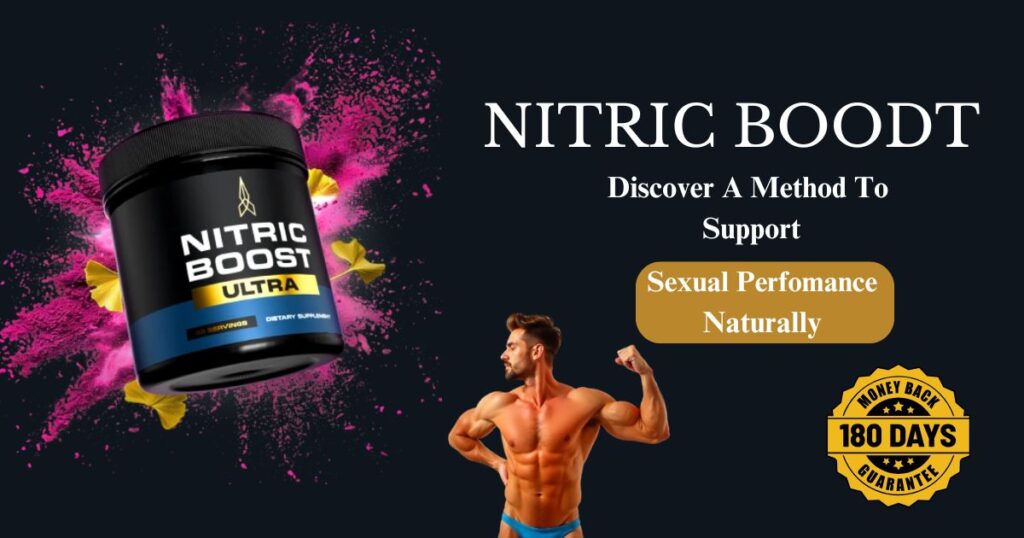
Nitric Boost: The Ultimate Guide to Enhancing Performance, Health, and Vitality
February 08, 2025
Introduction:
Nitric oxide (NO) is a vital molecule that plays a crucial role in various physiological processes, including blood flow regulation, immune function, and cellular communication. Often referred to as the "miracle molecule," nitric oxide is essential for maintaining cardiovascular health, enhancing athletic performance, and supporting overall vitality. The concept of Nitric Boost revolves around optimizing nitric oxide levels in the body to unlock these benefits. This article provides an in-depth exploration of nitric oxide, its functions, and practical ways to naturally enhance its production.
The Science of Nitric Oxide:
Nitric oxide is a gaseous signaling molecule produced by the endothelial cells lining the blood vessels. It is synthesized from the amino acid L-arginine through the action of the enzyme nitric oxide synthase (NOS). Nitric oxide's primary function is to relax and dilate blood vessels, improving blood flow and oxygen delivery to tissues and organs. This vasodilation effect is crucial for maintaining healthy blood pressure, supporting cardiovascular health, and enhancing physical performance.

Benefits of Optimal Nitric Oxide Levels:
- Improved Cardiovascular Health: Nitric oxide helps regulate blood pressure, reduce arterial stiffness, and prevent the formation of blood clots. It also supports endothelial function, which is vital for overall cardiovascular health.
- Enhanced Athletic Performance: By increasing blood flow and oxygen delivery to muscles, nitric oxide can improve endurance, strength, and recovery. It also helps reduce muscle soreness and fatigue.
- Boosted Immune Function: Nitric oxide plays a role in the immune response by helping to combat pathogens and support the body's defense mechanisms.
- Cognitive Function: Improved blood flow to the brain can enhance cognitive function, memory, and focus.
- Anti-Aging Effects: Nitric oxide supports cellular repair and regeneration, contributing to overall vitality and longevity.
Factors Affecting Nitric Oxide Production:
Several factors can influence nitric oxide levels in the body, including:
- Age: Nitric oxide production tends to decline with age, leading to reduced vascular function and increased risk of cardiovascular issues.
- Diet: A diet high in processed foods, sugar, and unhealthy fats can impair nitric oxide production. Conversely, a diet rich in nitrate-containing vegetables and antioxidants can support NO synthesis.
- Lifestyle Choices: Smoking, excessive alcohol consumption, and sedentary behavior can negatively impact nitric oxide levels.
- Environmental Toxins: Exposure to pollutants and toxins can reduce the body's ability to produce nitric oxide.
Strategies to Naturally Boost Nitric Oxide:
- Dietary Recommendations:
- Nitrate-Rich Foods: Consume vegetables high in nitrates, such as spinach, arugula, beetroot, and celery. Nitrates are converted into nitric oxide in the body.
- Antioxidant-Rich Foods: Include foods rich in antioxidants, such as berries, citrus fruits, nuts, and seeds, to protect nitric oxide from oxidative stress.
- L-Arginine and L-Citrulline: These amino acids are precursors to nitric oxide. Foods like watermelon, pumpkin seeds, and legumes are excellent sources.
- Exercise:
- Regular Physical Activity: Engage in regular aerobic and resistance training exercises to stimulate nitric oxide production. Activities like running, cycling, and weightlifting are particularly effective.
- High-Intensity Interval Training (HIIT): HIIT workouts can significantly boost nitric oxide levels and improve cardiovascular fitness.
- Lifestyle Changes:
- Quit Smoking: Smoking damages the endothelium and reduces nitric oxide production. Quitting smoking can restore endothelial function and increase NO levels.
- Limit Alcohol Consumption: Excessive alcohol intake can impair nitric oxide synthesis. Moderation is key to maintaining optimal NO levels.
- Stress Management: Chronic stress can hinder nitric oxide production. Incorporate stress-reducing practices like meditation, yoga, and deep breathing exercises to support overall well-being and maintain healthy nitric oxide levels.
- Supplements:
- Nitric Oxide Boosters: Consider supplements that support nitric oxide production, such as L-arginine, L-citrulline, and beetroot powder.
- Antioxidant Supplements: Vitamins C and E, coenzyme Q10, and alpha-lipoic acid can help protect nitric oxide from oxidative damage.
- Sunlight Exposure:
- Moderate Sun Exposure: Sunlight stimulates the production of nitric oxide in the skin. Aim for 10-30 minutes of sun exposure daily, depending on your skin type and location.

The Role of Nitric Boost:
Nitric Boost is a holistic approach to optimizing nitric oxide levels in the body. By adopting the strategies outlined above, individuals can enhance their cardiovascular health, improve athletic performance, and support overall well-being. Nitric Boost emphasizes the importance of a balanced diet, regular exercise, and healthy lifestyle choices to naturally increase nitric oxide production and reap its numerous benefits.
Conclusion:
Nitric Boost offers a comprehensive guide to understanding and enhancing nitric oxide levels in the body. By focusing on dietary recommendations, exercise, lifestyle changes, and supplementation, individuals can unlock the full potential of this "miracle molecule" for improved health, performance, and vitality. Embrace the principles of Nitric Boost and take proactive steps towards a healthier, more vibrant life.
You Might Like Also

ZenCortex: A Revolutionary Supplement for Ear and Brain Health

Renew: A Fresh Start for a Healthier, Happier Life

ProDentim: Revolutionizing Oral Health with Probiotics

















